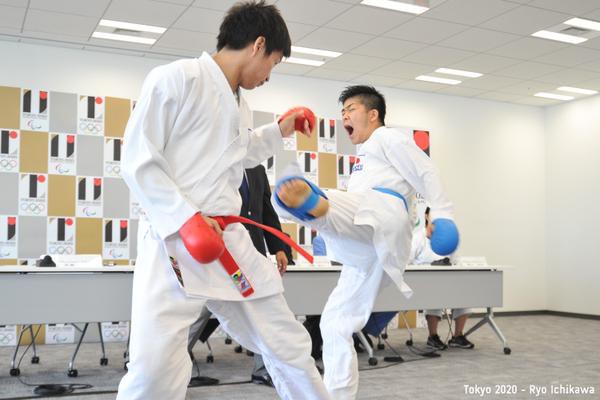
The International Olympic Committee (IOC) noted positive progress towards reducing the organizing costs for the Tokyo 2020 Olympic and Paralympic Games, but at the start of a three-day Coordination Commission visit to the Japanese Capital Wednesday urged officials to continue to look for more ways to save money in an effort to reverse the trend of mega-budget Games.
“Apart from the fact you’ve got the budget down now to around USD $13 billion [below the $20 billion cap the IOC set last year], the emphasis that you are continuing to work together to further reduce costs and optimise resources is not only important to you and taxpayers, but also very important to the IOC,” Tokyo 2020 Coordination Commission Chairman John Coates as the meeting kicked off.
“We know you can pay for the Games in a city as strong financially as yours and with the support you get from the government, private sector and sponsorship.
“But it is important to us that when the costs of the Games in the final analysis become public that they’re going to attract candidate cities, rather than scare them off.”
In the race for the subsequent Summer Games in 2024 three of five cities have already dropped out due to concerns of soaring costs and the associated risks. Rome’s Mayor rejected the project calling it “irresponsible” while taxpayers voted to end the bid in Hamburg and the Federal government withdrew support in Budapest after public push back.
London’s 2012 Games’ budget soared with the construction of a new Olympic park, and Sochi’s 2014 Winter Games undertook massive venue and infrastructure construction and saw the price tag skyrocket to a record-setting $51 billion.
Last year’s Games in Rio was wrought with delays, corruption and a tanking economy that pushed the budget well past estimates – and officials are still trying to calculate the final total.
Only Los Angeles and Paris remain standing for 2024, because both require little or no new venue construction and as a result, have lower projected budgets. The IOC have been so impressed with the example the two cities have set that they’re willing to award both of them the Games, in 2024 and 2028.
For the 2026 Winter Games, cities moving forward are noticing that trend. Sion in Switzerland has proposed a regional Games to manage costs while Innsbruck, Austria released plans last week that outlined a project requiring no venue construction and an Olympic Village that would leverage a needed housing project.
When Calgary’s 2026 bid exploration committee published a report last week that estimated a budget of about USD $3.5 billion, the IOC was quick to release a statement explaining that the former Canadian Olympic host city hadn’t fully considered the new rules and that new efficiencies would help reduce the costs.
 The 2026 campaign won’t launch until next year but the three Olympic bids will face public scrutiny over the next several months – Calgary with a Mayorial race in October that will likely be contested with the bid as an issue, a referendum in Innsbruck in October and another referendum in the Sion region next year.
The 2026 campaign won’t launch until next year but the three Olympic bids will face public scrutiny over the next several months – Calgary with a Mayorial race in October that will likely be contested with the bid as an issue, a referendum in Innsbruck in October and another referendum in the Sion region next year.
Opposition to the bids will focus on the soaring costs to organize the massive past events but the IOC will hope for further progress on the budgets of the Tokyo 2020 and Beijing 2022 Games to help adjust the optics and set a path for future, more economical Games.
If the IOC awards both 2024 and 2028 Games, as expected, during a meeting in September this year, the next Summer Games bid would be for 2032 leaving plenty of time, and incentive, to demonstrate that the new path results in a financially manageable Games. India has already discussed bidding for those Games.
“If we appear to be pushing very hard on saving money, it’s for our own future that we are doing it – just as much as you want to do it for your taxpayers,” Coates said in Tokyo.


